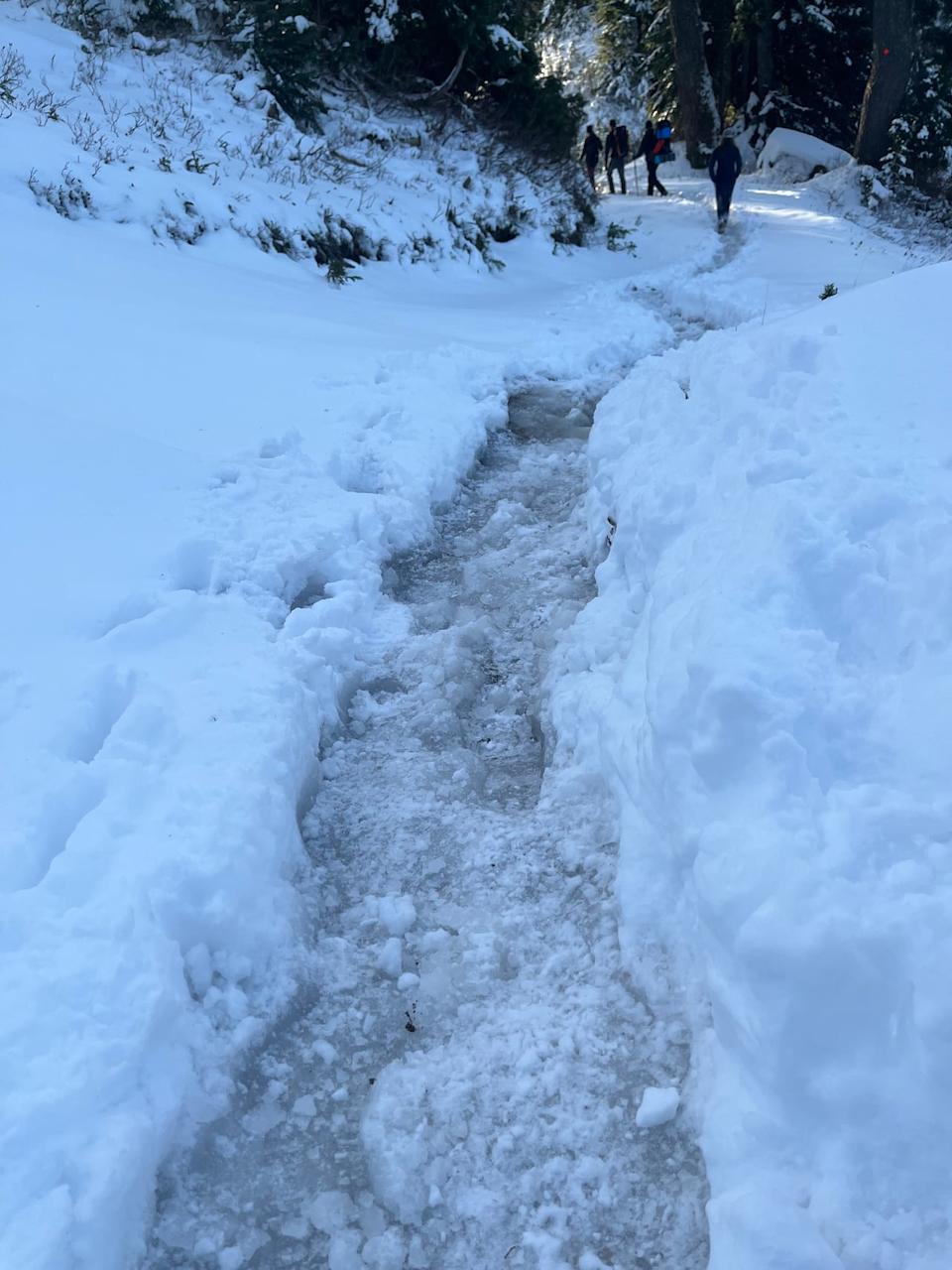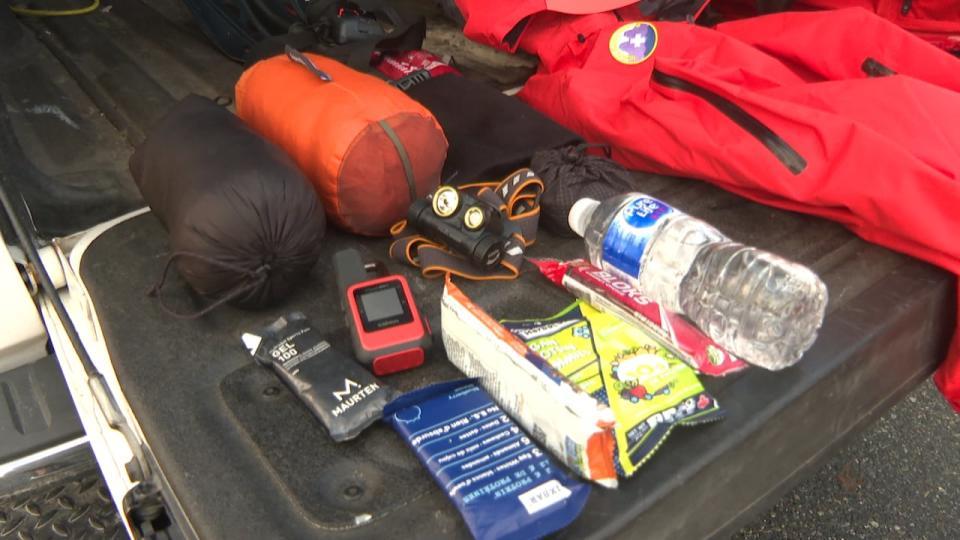North Shore Rescue urges caution after 2 hikers rescued from winter conditions in one night

A Lower Mainland search-and-rescue organization is urging outdoor adventurers to use caution and come prepared as winter weather creates riskier conditions in the North Shore mountains.
North Shore Rescue (NSR) helped rescue two hikers in one night earlier this week, both of whom were in danger due to freezing temperatures.
"If you find yourself stuck or injured, the temperatures are much colder, the visibility is poor, so things can go sideways in a hurry," said search manager Dave Barnett.
On Wednesday evening, NSR crews helped North Vancouver RCMP search for a hiker reported lost on Grouse Mountain or Mount Fromme who was trying to find a service road, Barnett said.
"He did make it to the summit of Mount Fromme but by then it was dark, it was cold, he was in snow, and he didn't have a headlamp," he said.
"So it didn't take long before he lost the trail, and I'm sure by then he was very cold."
The man managed to bushwhack down a frozen creek bed, according to Barnett, and eventually walked out onto a service road where North Vancouver RCMP and NSR had made an educated guess he might appear.
Barnett says the man, who was from out of town and wasn't wearing warm clothing, is lucky to have survived.
"In that kind of temperature, that's a very serious situation," said Barnett.

A snowy hiking path is seen. North Shore Rescue helped a man down from the first peak of Mt. Seymour on Oct. 26, 2023, their second rescue call that night. (North Shore Rescue/Facebook)
"He could have easily found himself hurt, ended up in the creek, could easily have become hypothermic … [and] it was such a large area, it could have taken days to find him if he became unresponsive."
Before the sun had risen the next morning, NSR crews were back out to help a hiker stranded at the first peak of Mount Seymour, 451 metres in elevation above the parking lot.
The man had camped overnight and was prepared to do so but woke up with muscle cramps and a severe headache and could barely move, said Barnett.
"It sounded like he might be suffering from exhaustion and dehydration," he said.
Two bystanders stayed with the man and helped NSR walk him back down the nine kilometres to the parking lot.
"I think what happened to him is he was actually surprised by the amount of snow on the ground," said Barnett.
"Of course he wasn't wearing snowshoes. He had some microspikes, but in the snow and the slippery conditions it took twice as much effort with his heavy pack."
Changing conditions increase risks
NSR says it has had about five calls this week alone, and often sees an uptick around this time of year as winter brings colder temperatures, earlier nightfall and slippery frozen paths.
Changing conditions increase injury risks and can catch even experienced hikers or regular trail runners off guard, Barnett said.
Outdoor educator Brent Hillier says the transitional season can be particularly dangerous with temperatures hovering around 0 C causing melting and refreezing while the snowpack is still not firmly established.
"It is definitely risky right now, I prefer to wait until there is at least a metre of snow out there because right now you are mixing in snow and ice on roots and rocks and it's a lot more dangerous at this time of the year," said Hillier.
Preparing for the worst
Barnett says the two rescues illustrate the importance of hikers and runners of all experience levels having proper equipment and taking precautions for every journey, no matter how short.
Hikers should tell someone exactly where they plan to go and when they expect to be back, said Barnett.
"That's even more important in the winter, of course, because it gets dark so early," he said.
Planning for winter conditions and knowing your route, even when you don't expect to be out overnight, is also essential, said Barnett.
That means bringing warm waterproof clothing, high sturdy boots with microspikes, a headlamp and navigation equipment, he added, points echoed by the provincial government's online tips.

A North Shore Rescue team leader lays out essential gear he says rescue workers carry with them at all times when they're out in the B.C. backcountry, in this early 2023 photo. (Yasmin Gandham/CBC)
The B.C. Search and Rescue Association also recently launched Adventure Hub, which includes a database of vetted adventures as well as safety tips to help people plan and prepare for their routes.
Barnett says NSR is bracing for a surge of calls from trail runners who've slipped and twisted ankles and aren't prepared to wait outside for three or four hours while rescuers try to locate them on foot if flying visibility is poor.
"We are really glad that people are getting out to enjoy our beautiful outdoors here in B.C.," said Barnett.
"We certainly want them to do it safely and appreciate that, in the winter, there are risks and hazards that just don't exist in the summer, so people need to be more vigilant about being prepared and properly equipped."


